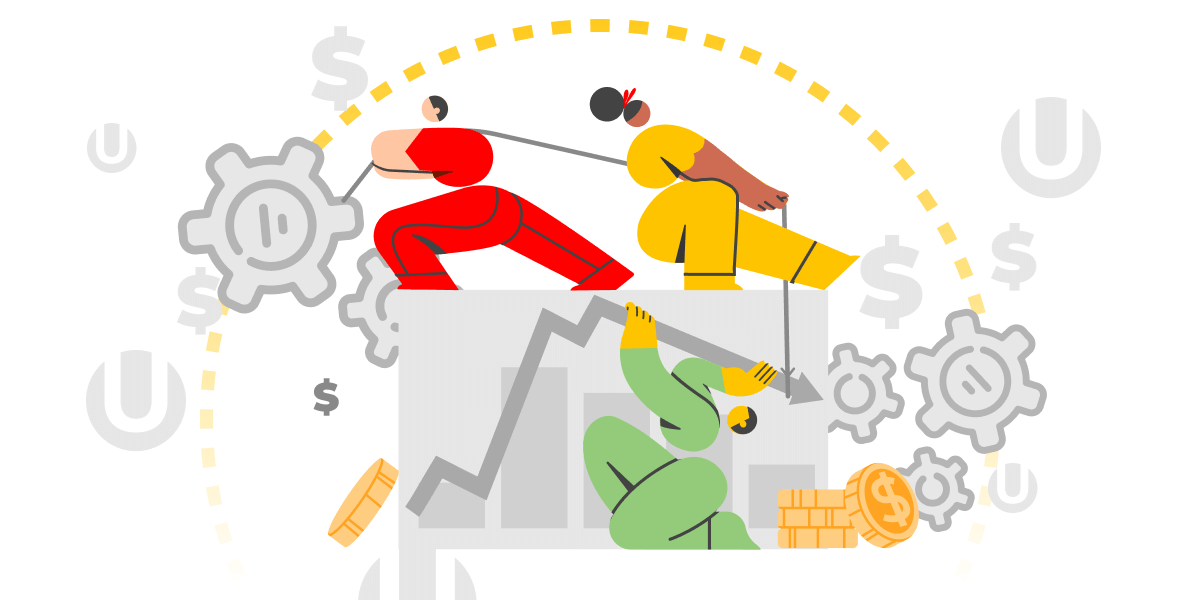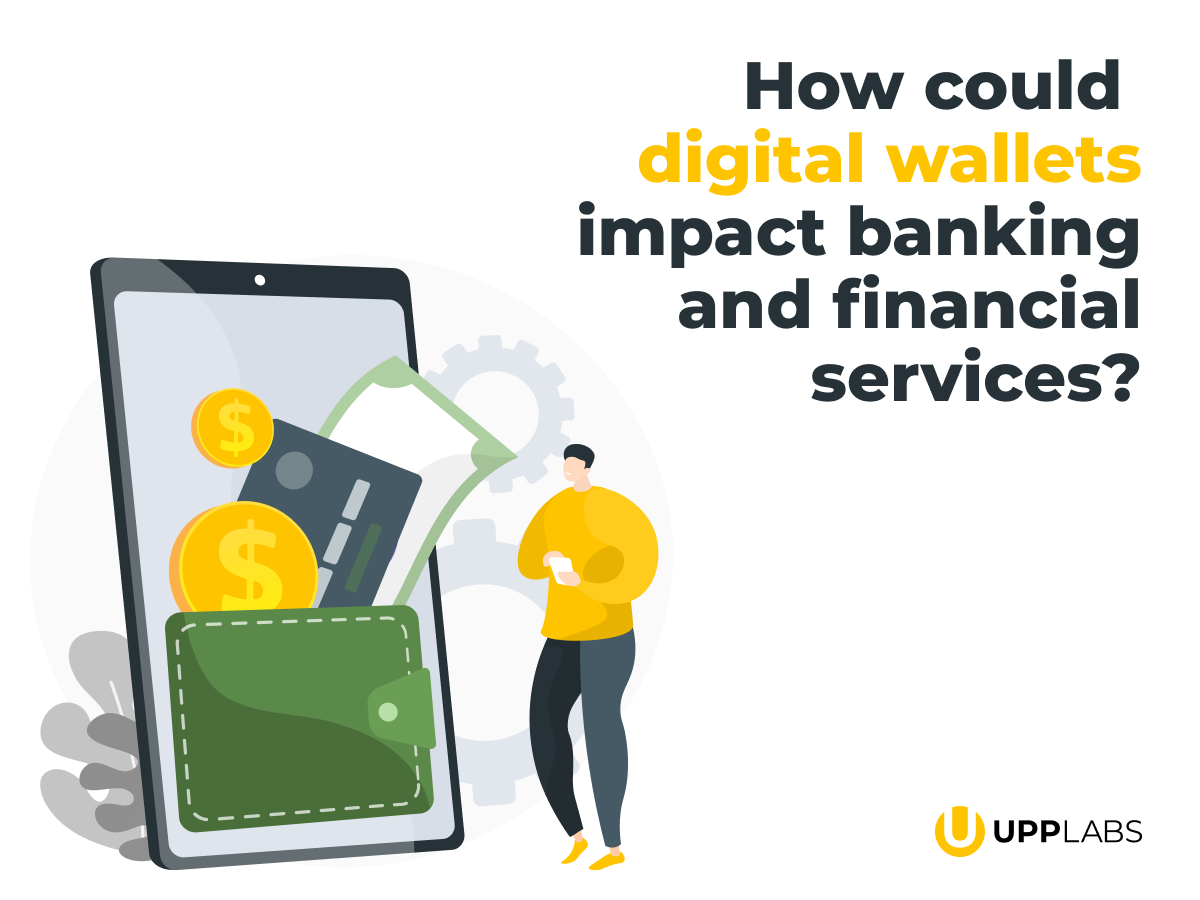Financial software development services for FIs (Fidelity Information Services) have significant demands. If you want to work in the financial industry, you need to integrate future-proof solutions into your fintech strategy. In this article, we’ll reveal the main stages of Fintech development and get to know the role of financial software development in detail.
What is software development in the FIs like?
Before we speak of Software development in the FIs, let’s determine some of the main aspects of financial software development and the role of the specialist working in this field.
1. What is financial software development?
What do we mean when we use the expression – financial software development? It is a term that includes a variety of tech processes.
Financial software development involves the implementation of systems aimed at increasing the productivity of employees and improving and automating financial processes in the company with the help of tech innovations such as AI, ML, and big data.
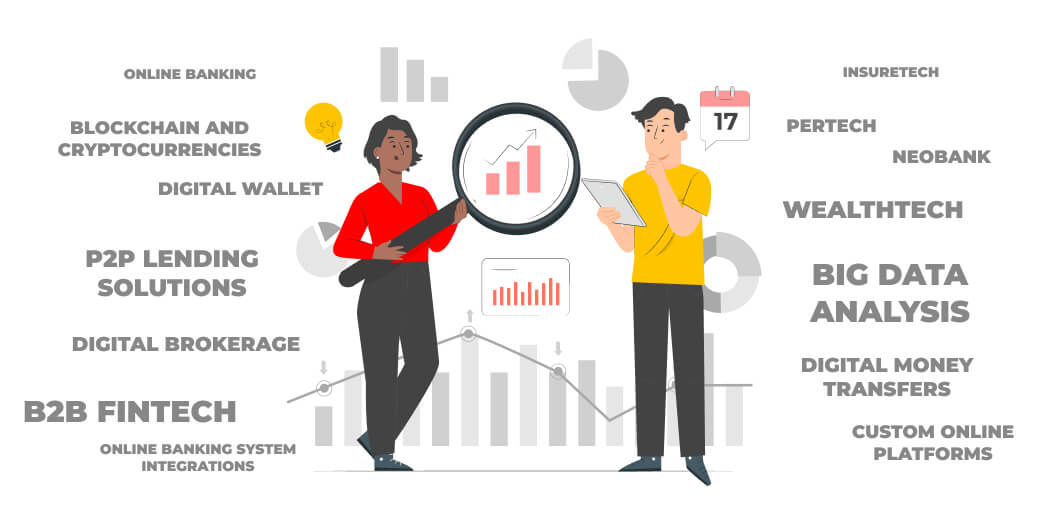
The Financial Services usually include:
- Online Banking
- Blockchain and Cryptocurrencies
- Digital Wallet
- P2P Lending Solutions
- Digital Brokerage
- B2B Fintech
- InsureTech
- PerTech
- Neobank
- Wealthtech
- Big Data Analysis
- Digital money transfers
- Custom Online Platforms
- Online Banking System Integrations
The most common clients of the Fintech market are international payment systems, cryptocurrency acquiring systems, brokers, crypto-traders, and foreign cryptocurrency exchanges. This industry is quite dynamic. Each technological breakthrough can determine a new direction in the development of Fintech.
2. What does a financial software developer do?
A financial software developer is responsible for developing and updating software applications or platforms in the finance industry. Such a specialist can cooperate with different financial software development companies providing development services, from credit software to financial fraud detection software.
The Financial software developer needs to be experienced in the financial and banking industry as a whole and understand arising and changing technologies in this field.
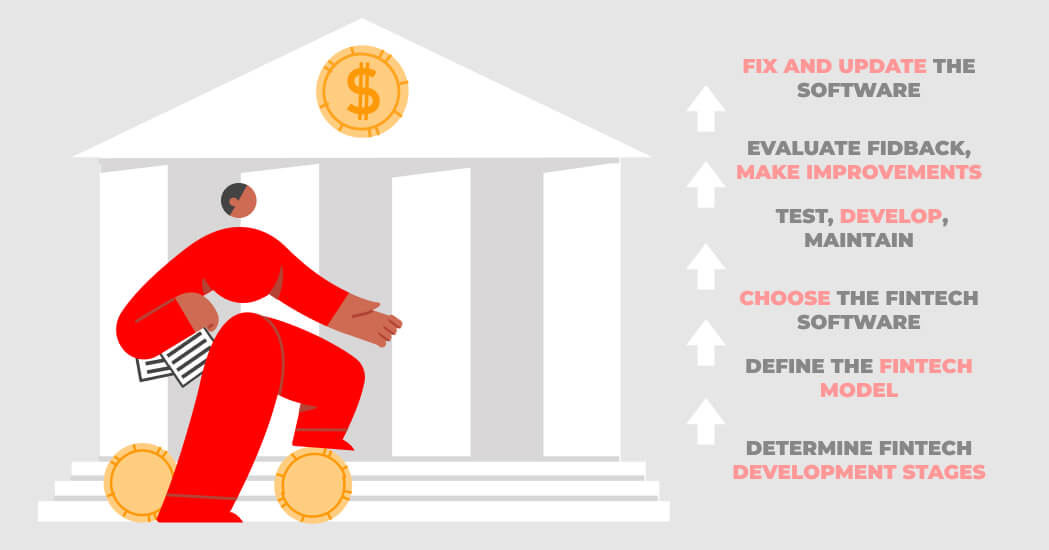
3. What is the role of software developers in banking?
The primary responsibilities of a financial software developer imply the fulfillment of the following tasks:
- Determine and implement all stages and specifications of financial software development.
- Define the Fintech model for the new financial software platform and decide on the algorithms and necessary functionalities.
- Choose the Fintech software that meets the specific needs of the business.
- Test, maintain and go through all stages of the Fintech programs or mobile applications after their development.
- Evaluate the target audience’s feedback, make improvements to the current version of the financial software.
- Fix and update the software programs for the finance and banking industry.
4. What are the features of the development of financial software systems
If you want to create a unique Fintech solution, you need to get a clear understanding of the features and functionality of your final product. There is a list of some crucial features that need to be present in every Fintech product. Here, we can name such features as:
- Security features (like biometric authentication, Face ID, Touch ID);
- Multi-factor verification of users;
- Dashboards with payment transactions and other data;
- Integrations with payment gateways and social networks;
- Push notifications about money transfers;
- AI-based chatbot.
To the additional functionality we can add:
- Payments of bills and loans;
- Reports on the money analytics;
- Map integrations to the ATMs and banks;
- Cryptocurrencies rates and conversions;
- Credit functions.
5. What are the stages of Fintech development
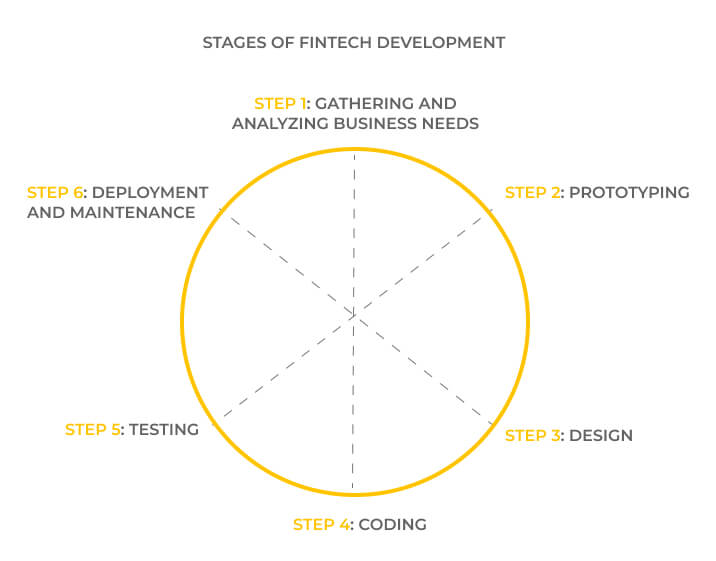
Every Fintech has its peculiarities depending on the Fintech solution, but generally, the stages of the Fintech development process are following:
- Gathering and Analyzing Business Needs
Before developing a Fintech application, you need to decide your Fintech, create a digital strategy and gather relevant data. Here, the team discusses the future project and finds out its specifications. Depending on the product you need – a service for personal financial management, trading platform, or blockchain solution, – the team analyzes the existing market and writes a detailed business plan.
- Prototyping
When developing a mobile application prototype and wireframes, the team focuses not only on its functions and tools but also on high-quality UX/UI. The team must create a product’s interface that can be easily understood even for financially inexperienced users.
- Design
At this stage, the designers create the application’s interface elements following the approved visual style. Along with this, they also implement service navigation to simplify the user experience of your customers.
- Coding
As part of the implementation of the software development, the team chooses the best technology stack that meets the Fintech product. The Fintech developers can create a native application for a specific mobile platform (iOS or Android) and a cross-platform service that supports both operating systems.
- Testing
QA engineers check the compliance with the design, troubleshoot the Fintech technical specifications, prepare test documentation, conduct manual, and automated testing. All this helps to review the work of different software parts of the project and to minimize bugs.
- Deployment and Maintenance
When the product is tested, the team transfers the project to the client for deployment. After the release, the Fintech software development company usually doesn’t stop participating in the life of the project, provides constant support, and fixes the bugs if they appear.
6. What tech stack is used for Fintech development
The tech stack you choose for your Fintech platform highly depends on the software architecture, functionality, integrations, and many other aspects. But, as a rule, the Fintech solutions are usually based on such technologies:
- Software development kits (SDKs) like AppleXCode, iOS, and Android SDKs, Android Studio;
- Programming languages like Python, Django, Swift, Kotlin, JavaScript, .net, C#, Java, Flutter, Xamarin;
- Cloud-based Technologies like Google Cloud, AWS, Azure, Heroku, PaaS, MBaaS;
- Databases like PostgreSQL, MySQL, MongoDB;
So you can connect all the functions you have in mind, it’s better to consider these APIs:
- Plaid and Yodlee used for banks and financial institutions;
- Stripe for payment gateways;
- Experian for credit solutions;
- Slack, Dialogflow, Wit.ai, Social Media;
- Chatbots created with AL-based solutions, ML, and NLP.
Our UppLabs dev team is proficient in using the latest technologies, frameworks, and methodologies that are served for creating the best web and mobile solutions for our clients.
If you’re looking for a Fintech development partner – there is no point in further search! Check our expertise here.
UppLabs is a perfect companion to lift you Upp!
